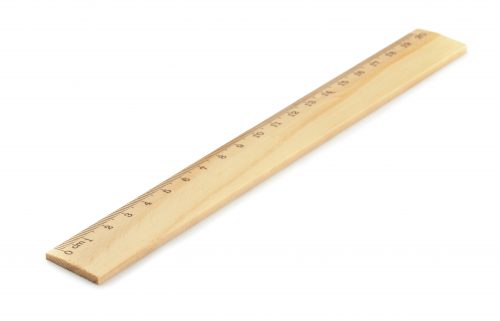
Last week I shared 7 key steps I took to write my book. While creating structure and enlisting the support of friends and a professional editor certainly helped a great deal, all the structure and support in the world didn’t prevent my inner critic from raising its tyrannical voice and threatening my progress – sometimes on a daily basis.
If I was to achieve my goal, I had to take the advice I offer participants in my seminars and coaching sessions. And guess what? It worked for me. And it can work for you, too. Here’s how I quieted the voice of my inner critic long enough to write my book.
- I reminded myself that contrary to popular belief, our inner critic often shows up when we are up to something big and juicy in our lives. This prevented me from believing that the doubt in his* voice meant I should cease and desist. (*Yes – my inner critic, a.k.a. “the Ruler,” is a “him” in the form of a 12-inch wooden ruler. But yours might be a “her” or even an “it.”)
- As nasty and gnarly as the Ruler can be, I’ve come to understand (and this is important) that he actually has my best interests at heart – underneath it all he is more like a frightened child in need of reassurance and compassion than an evil monster.
- When the Ruler showed up, I’d give him five minutes to have his say. Sometimes I’d even write down what he was saying so he would know I was listening. Then I’d talk back to him – either on paper or while sitting in a comfortable position, “Thank you for sharing, Mr. Ruler. I know you have my best interests at heart. I’d like you to have a seat on the couch while I go to my desk and write for 30 minutes. We can talk again tomorrow.”
- I gave myself permission to write a really bad book. This was huge as the Ruler was a tried-and-true perfectionist who would challenge my credibility and taunt me with the works of more accomplished writers. Allowing myself to write even a bad book made me realize I’d rather write a bad book in my own voice than no book at all.
- I practiced (sometimes with the help of friends) reframing some of the Ruler’s most virulent criticisms:
- The Ruler: Cheryl, hasn’t it all been said before?
- Me: Well, that’s like asking hasn’t it all been painted before. Yes, it’s all been said before but it’s never been said by me. There are only three primary colors in the world but an infinite variety of colors.
- The Ruler: Cheryl, you’re not a writer, you’re a coach. Your father and brother are award-winning writers who make a living writing. You majored in psychology. You don’t know the difference between an adverb and an ad lib.
- Me: That may be so, but I will certainly hire someone to help with the editing. Plus, a writer is someone who writes. Not necessarily someone with an MFA.
- Lastly, I read this quote by Audre Lorde every day before I wrote to remind myself of what I was more passionate about than afraid of, “When I dare to be powerful, to use my strengths in the service of my vision, then it becomes less and less important whether I am afraid.”
So, dear reader, tell me:
- How do you manage the voice of your inner critic?
- Who would you be without that voice?
- What are you more passionate about than afraid of?
Cheryl – Thank you for this. I was just dialoguing with my own inner critic just before I opened this up. I agree with everything you said. I also realize that taking care of myself is key. My inner critic seems to be much more powerful when I am tired, under-execised, or not eating well. Off I go for a run to shift the energy around and unleash my inner (and outer) strength!
Excellent point, Adina. Self-care is indeed critical and without it, as you note, we are so much more vulnerable to believing the voice of our inner critic. Thank you for sharing this important point.
Thanks, as always, for sharing these very helpful ways to cope AND co-exist with an important part of myself.
My pleasure, Vicki. Glad it proved useful to you. Yes – it is indeed possible to co-exist with all parts of ourselves.